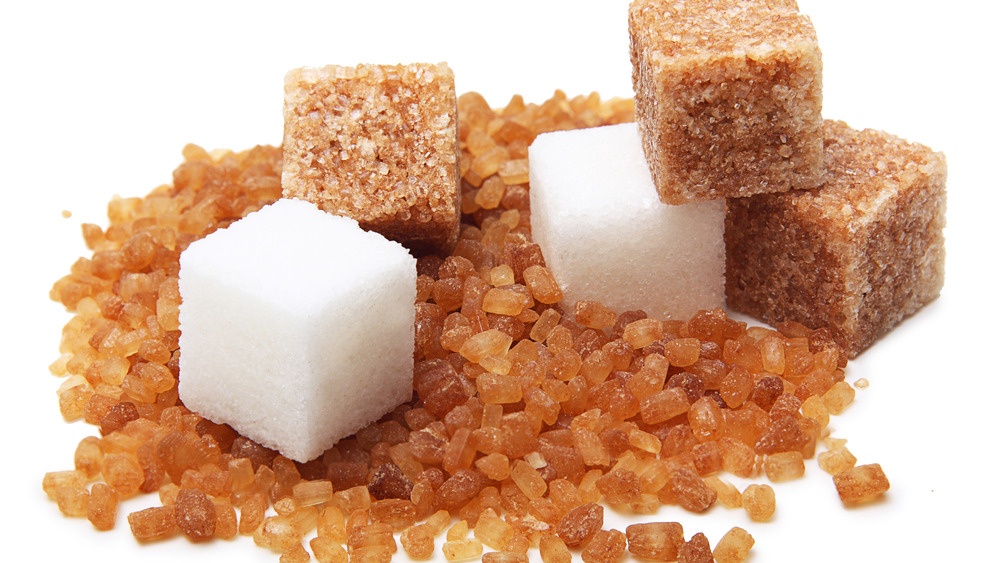Advanced Cane Sugar Processing: Enhancing Efficiency and Sustainability
Advanced Cane Sugar Processing: Enhancing Efficiency and Sustainability
Blog Article
A Detailed Summary of the Health and Economic Effects of Cane Sugar Processing on Neighborhood Neighborhoods
Walking cane sugar processing plays an essential function in shaping the economic landscape of regional neighborhoods, providing work possibilities and boosting supplementary industries. The wellness implications associated with high sugar usage can not be overlooked, as they add to rising rates of weight problems and diabetes.
Economic Benefits of Walking Cane Sugar Processing
Walking cane sugar processing provides substantial financial benefits that expand past the immediate agricultural sector. The farming and processing of sugarcane develop numerous job chances, from farming to manufacturing and circulation. This employment generation not just supports neighborhood economic situations yet likewise promotes neighborhood growth by offering steady income resources for households.
Moreover, the sugar market promotes ancillary services, consisting of transportation, equipment supply, and product packaging services (Cane Sugar Processing). As these markets expand, they add to a much more durable economic framework, improving general area strength. The export potential of processed walking cane sugar better amplifies financial advantages, placing regions as competitive gamers in global markets
Financial investment in modern-day processing facilities can cause boosted performance and efficiency, thereby lowering waste and optimizing resource usage. This change not only benefits the regional economic situation yet likewise sustains sustainability initiatives by decreasing environmental effects.
Furthermore, the earnings produced from cane sugar handling can be reinvested in neighborhood framework, education and learning, and medical care, promoting holistic community growth. Overall, the economic benefits of walking stick sugar handling are multifaceted, offering a structure for withstanding prosperity in agricultural regions.
Health And Wellness Dangers Connected With Sugar Consumption
Excessive sugar consumption poses substantial health and wellness dangers that require significant interest. High consumption of included sugars, especially from processed beverages and foods, has actually been linked to numerous health and wellness complications.
In addition, high sugar usage is associated with heart disease. Elevated blood glucose levels can cause insulin resistance, a precursor to various heart-related concerns. Additionally, sugar can have destructive results on oral wellness, causing tooth cavities and periodontal disease, as bacteria in the mouth thrive on sugar, producing acids that erode tooth enamel.
Furthermore, emerging research suggests a potential link between high sugar intake and psychological health and wellness problems, such as anxiety and stress and anxiety. As communities face these wellness risks, it comes to be necessary to promote awareness and urge much healthier dietary options. Resolving sugar intake is vital not only for specific wellness but also for the general wellness of neighborhood areas, emphasizing the need for detailed public health techniques.
Environmental Effects of Sugar Production
Often ignored in discussions regarding sugar's ramifications is the considerable environmental impact of sugar manufacturing. The farming of sugarcane typically requires comprehensive land usage, causing deforestation, loss of biodiversity, and interruption of local communities. The conversion of forests and wetlands into sugar vineyards can cause environment destruction, harmful numerous types and changing environmental balance.
Moreover, sugar production is resource-intensive, consuming considerable quantities of water for irrigation. This can lead to deficiency of neighborhood water resources, negatively affecting both farming methods and neighborhood access to tidy water. Furthermore, using chemical plant foods and pesticides in sugarcane farming can contribute to dirt degradation and water pollution, as drainage from these chemicals enters neighboring rivers and lakes, affecting aquatic life and human wellness.
The ecological footprint encompasses the handling stage, where energy usage and waste generation more exacerbate environmental issues. Air pollution from melting sugarcane fields, in addition to greenhouse gas exhausts, add to environment adjustment. Thus, the environmental implications of sugar manufacturing warrant major factor to consider, advising stakeholders to adopt even more lasting practices to mitigate these adverse impacts on neighborhood ecological communities and communities.
Task Development and Area Development
The ecological obstacles posed by sugar production are frequently reversed by its capacity for financial benefits, particularly in task creation and neighborhood growth. The cane sugar market acts as a considerable resource of work in many backwoods, giving jobs throughout numerous ability degrees, from farming labor to processing and distribution functions. This employment not only supports private family members yet additionally adds to the overall economic vitality of regional neighborhoods.
Furthermore, the establishment of sugar processing centers promotes secondary organizations, such as transport solutions, equipment supply, top article and maintenance companies. As these services flourish, they produce extra work and strengthen neighborhood economies. The income created from the sugar sector likewise causes increased tax earnings, which can be reinvested right into social work such as framework, education and learning, and health care growth.
Furthermore, the sugar industry often takes part in neighborhood growth campaigns, such as sustaining regional colleges and wellness programs, thereby improving the lifestyle for homeowners. By promoting strong neighborhood ties and promoting economic growth, the walking cane sugar processing field plays an essential role in uplifting local populaces, making it a vital component of lasting development approaches in sugar-producing areas.
Harmonizing Health And Wellness and Economic Development
In browsing the complexities of walking cane sugar processing, an important obstacle hinges on stabilizing health factors to consider with financial development. The sugar market dramatically adds to regional economic climates by generating tasks, boosting relevant markets, and enhancing tax obligation earnings. However, the health ramifications related to too much sugar intake can lead to persistent illness such as excessive weight, diabetes, and cardio issues, which can concern public health systems and diminish workforce efficiency.

Moreover, governing structures can play a pivotal function in assisting market practices in the direction of more health-conscious and lasting methods. By cultivating partnership between federal government bodies, health and wellness organizations, and the sugar sector, areas can browse the dichotomy of health and wellness and economic development, making sure that the advantages of walking cane sugar processing are equitably shared while focusing on public wellness.
Final Thought
Finally, the handling of cane sugar presents both considerable economic benefits and noteworthy health and wellness dangers for neighborhood areas. While it promotes task development and promotes regional growth, the associated health and wellness issues, especially relating to obesity and diabetes mellitus, require a cautious balancing act. By webpage advertising accountable consumption and investing in community education and learning and lasting methods, it is feasible to make best use of financial advantages while reducing adverse health results, therefore ensuring a much healthier future for regional populations.
Furthermore, sugar can have destructive impacts on oral wellness, resulting in tooth cavities and gum disease, as microorganisms in the mouth flourish on sugar, producing acids that wear down tooth enamel.
Attending to sugar consumption is vital not only for specific health and wellness yet additionally for the overall health of local neighborhoods, stressing the requirement for extensive public health and wellness methods.
Frequently ignored in discussions concerning sugar's ramifications is see post the significant environmental influence of sugar production. The wellness implications linked with excessive sugar usage can lead to persistent diseases such as excessive weight, diabetic issues, and cardio issues, which can problem public wellness systems and diminish workforce efficiency.

Report this page